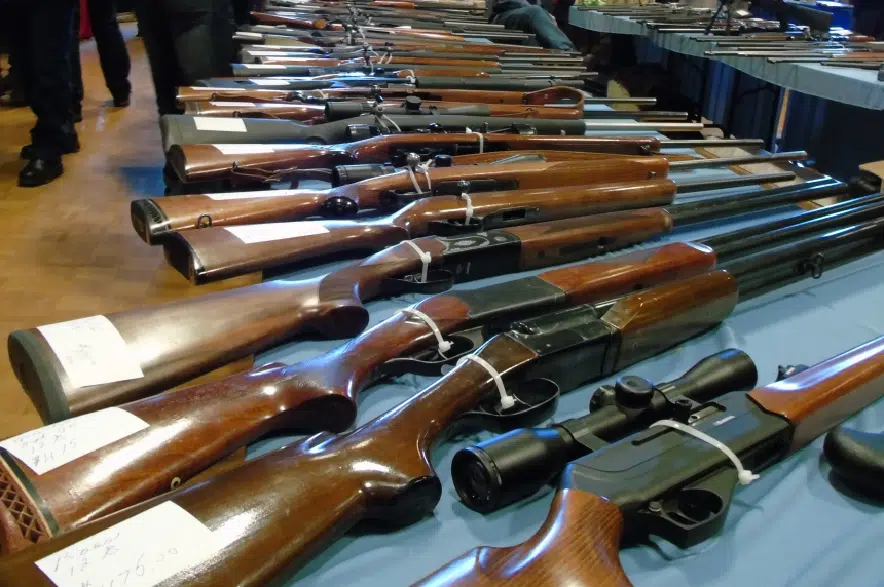The federal government’s proposed new gun legislation violates treaty rights, according to the Federation of Sovereign Indigenous Nations (FSIN).
The federal government says Bill C-21 is aimed at reducing gun violence to keep Canadians safe. It includes a freeze on the sale, purchase and transfer of handguns except for a few select businesses and individuals. It also includes a firearm “buyback” program.
Recently, prairie provinces banded together to oppose amendments to that firearms legislation.
FSIN Fourth Vice-Chief Heather Bear said Bill C-21 and its proposed amendments infringe on Indigenous rights to hunt both on reserve lands and on traditional territories.
It also contains myriad rules that the FSIN doesn’t believe apply to Indigenous hunters.
“Handguns are used in the far north. They’re still trapping and — for small game — handguns are still used,” said Bear.
Indigenous hunters also shouldn’t need a Possession And Acquisition license (PAL), she said.
“We don’t register our guns. We don’t feel we have to because a lot of these guns are passed down through families and through ceremonial rituals. That’s just our way of life,” Bear explained.
“We have a treaty card. That is already a promise of fiduciary responsibility.”
Bear said RCMP officers are already seizing guns and fining some Indigenous hunters in Saskatchewan.
“They’re getting fines … right up to $2,300 (or) $1,700. And these hunters are out there simply asserting their treaty right to hunt on lands. We were promised that way of life would always be there,” she said.
Bear said Indigenous chiefs across Canada unanimously passed a motion to reject the bill and its amendments, adding the federal government should stick to crime prevention.
Guns are viewed as tools, she explained. Taking a gun away from an Indigenous hunter takes away their ability to provide sustenance for their families and communities while also infringing on their customs, values and traditions.
“Bill C-21 doesn’t apply to us. Our treaties trump everything there,” she said.







